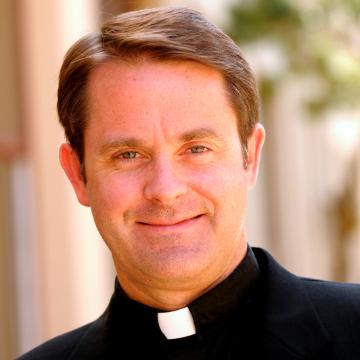
Where Did Sin Go?
A world-class neurologist once told me something that has always stayed with me. He mentioned that he could always tell which stroke victims had a chance of recovery from those who would probably never get better. The test was not as high-tech as I imagined.
While the patients waited for an appointment with this neurologist he had the nurse situate his patients so they faced some kind of mirror. Then, from off to the side, he would observe them. Those patients who would look at themselves had a chance of recovery. By contrast, those who avoided seeing how the stroke paralyzed a side of their face or damaged their use of an arm had little capacity to get better.
Difficult, awkward self-reflection, in other words, was critical to healing.
Difficult, awkward self-reflection, in other words, was critical to healing.
The neurologist was not making a medical point with me; he was making a moral point. More specifically, he was sharing with me his concern that language of sin had apparently vanished from religious discourse. What he learned in his own profession he applied to the larger spiritual life: that recognition of our own sins, the ability to witness how they can deform us at a very personal level, and the resolve to attend to our sinfulness with patient trust, together, remain a central part of well-being.
Outrage, by contrast, the expression of large-scale social anger has become a highly acceptable part of our moral landscape.
After an election season where the spirits of outrage and anger have blown about like so many hurricanes, we need to repair and rebuild what the columnist David Brooks has recently called our national “moral capital.” That would include looking into our own hearts.
In his recent book, the Road to Character, the same author laments that the concept of sin has largely been abandoned. And he effectively makes the same argument that my neurologist friend made to me many years ago: that sin is one of those concepts we excise from our discourse at our own peril. “Sin” is one of those words like “virtue” or “character.” When we try to replace them with words like “error” or “insensitivity,” it doesn’t make life any less moral,
...it just means we have obscured the inescapable moral core of life with shallow language. It just means we think and talk about these choices less clearly, and thus become increasingly blind to the moral stakes of everyday life.
– David Brooks
There are good reasons to be exceptionally careful with the more intense language. If misapplied, it can do real damage. People should not be treated, for instance, as if they are depraved or as if their natural desires for sex or fun are inherently evil. People do not need to be scolded at every turn.
The practice of looking together, sometimes through tears but more often just with dry and experienced eyes, is part of an extremely gracious practice of healing.
As someone, though, who has heard confessions for more than 20 years now, I have come to recognize important differences in people who come to that sacrament. Occasionally, for instance, you encounter people who beat themselves up in ways that are psychologically and spiritually unsound, and they require real help to understand that God does not desire self-loathing. The vast majority of souls, however, are like the neurologist’s patients. Gently and sometimes with profound courage they are simply looking for support and encouragement as they reflect on what they see in the mirror. The practice of looking together, sometimes through tears but more often just with dry and experienced eyes, is part of an extremely gracious practice of healing.
I am always profoundly encouraged by such an experience. I wish that the spirit I encounter there would become a more prevalent part of a culture whose moral expressions often seem reduced to outrage, anger, and condemnation.

